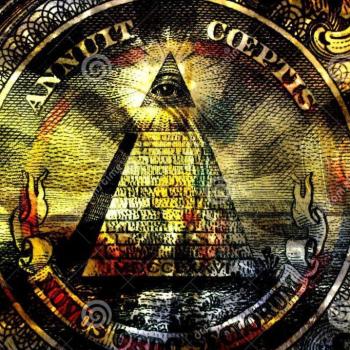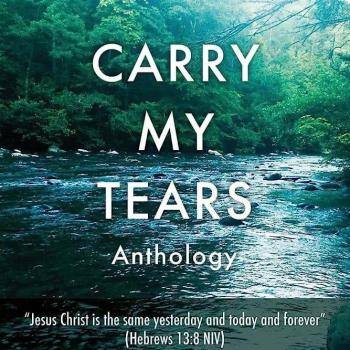
The Torah is part of the sacred text of Judaism. It, along with the Nevi'im and the Ketuvim, comprise the Hebrew scriptures, or what Christians call the Old Testament and what Jews call the Tanakh. Tanakh is an acronymic word composed of the first letters of each section. Nevi'im means "prophets," and this section of the Hebrew scriptures includes Joshua, Judges, 1 and 2 Samuel, 1 and 2 Kings, Isaiah, Jeremiah, Ezekiel, Hosea, Joel, Amos, Obadiah, Jonah, Micah, Nahum, Habakkuk, Zephaniah, Haggai, Zechariah, and Malachi. Ketuvim means "writings," and it includes the remaining books: Psalms, Proverbs, Job, Song of Songs, Ruth, Lamentations, Ecclesiastes, Daniel, Ezra, Nehemiah, 1 and 2 Chronicles.
The Torah is comprised of the first five books of the Bible: Genesis, Exodus, Leviticus, Numbers, and Deuteronomy. It has often also been called the Pentateuch, which simply means "five books." These five books form the foundational history and identity of the Jewish people. It is also known as the Five Books of Moses since Jewish tradition identifies Moses as the author of all five books.
To speak of Moses as the author, however, is partially misleading since it suggests that he wrote the books himself. It would be more accurate to say that Jewish tradition teaches that Moses received the Torah. The book of Exodus tells the story of the Israelites' flight from slavery in Egypt, and their journey to Mount Sinai (see Exodus 19). According to rabbinic theology, Moses ascended Mt. Sinai, and there God revealed the Torah. Most contemporary scholars believe that the Torah is composed by multiple authors at different times in ancient history. Ancient oral histories were gradually recorded and edited, the five books coming together in their final form much later than Moses.
The Torah is often referred to as the Book of Law. While it does contain many laws and regulations for the Jewish people, the word "law" is too narrowly conceived by many. The Torah is not just about rules but about the customs, traditions, histories, and values that define the Jews" relationship with God. It gives the basis for the Jewish understandings of human identity, social goodness, divine wisdom, family coherence, and community well-being. It tells Jews and all the world (for its overarching message is intended for all humanity), the nature of God, the purposes of God in creating, and the right way to live in a relationship with God.
The first book of the Torah, Genesis, is a book about beginnings: the beginning of creation, the beginning of human society, the beginning of sin and brokenness, and the beginning of the Jewish people. It takes the reader from the creation of the first humans, Adam and Eve, to the death of Joseph in Egypt, setting the scene for the first chapter of Exodus.
Exodus begins with the Israelites' suffering as slaves in Egypt and introduces Moses as God's appointed deliverer. A series of increasingly devastating plagues finally convince Pharaoh to release the Israelites, and they begin their forty-year trek back to Canaan, the land God had promised to Abraham and his heirs. The story is interrupted, however, by Moses's long conversation with God on Mount Sinai. There he spends forty days alone with God, receiving a variety of instructions, including the heart of God's Law—the Ten Commandments—and directions for building the tabernacle where God would meet with the people.
Leviticus is the third book of the Torah, and it is concerned primarily with matters of temple worship. The Levites were one of the twelve tribes of Israel, and they were the ones appointed by God to serve as priests. The book addresses sacrifices, protocols for proper worship, issues of purity and impurity, and moral codes. The details of God’s attention to every part of a person's life—food, clothing, neighbors, family members, land ownership, childbirth, worship, feasts, slavery, sickness, and more—demonstrated to God’s people, not divine pickiness and legalism, but an all-embracing call to holiness. Everything about their lives mattered to God.
In Numbers, the narrative of the Israelites’ journey continues, and the people travel from Mount Sinai to the borders of Canaan. Along the way, they grumble and complain, encounter military resistance from other people groups, lose patience, are sustained by miracles, and they rebel in multiple ways. Most notably, Numbers tells the story of the spies sent into the Promised Land, and while they bring back an excellent report of the good life to be had there, they had no faith in God to bring them success. Their rebellion meant an entire generation of the Israelites had to die away before God would bring them out of the desert.
Deuteronomy is the summary book of the Torah. It is comprised of Moses's farewell address to the people. Because of his sin of anger and impatience, he was not given the opportunity to accompany the people. Here, before they crossed over the Jordan into the land God had promised them, Moses gave his final words of counsel to the people. He reminded them of their journey, of how God had provided for them; he reminded them of the Law (with a full repetition of the Ten Commandments); he warned them of the dire consequences of unfaithfulness; he transferred leadership to Joshua; he blessed the people and confirmed their covenant relationship with God.
Read more about Jewish sacred texts here.
3/14/2023 4:34:46 PM











